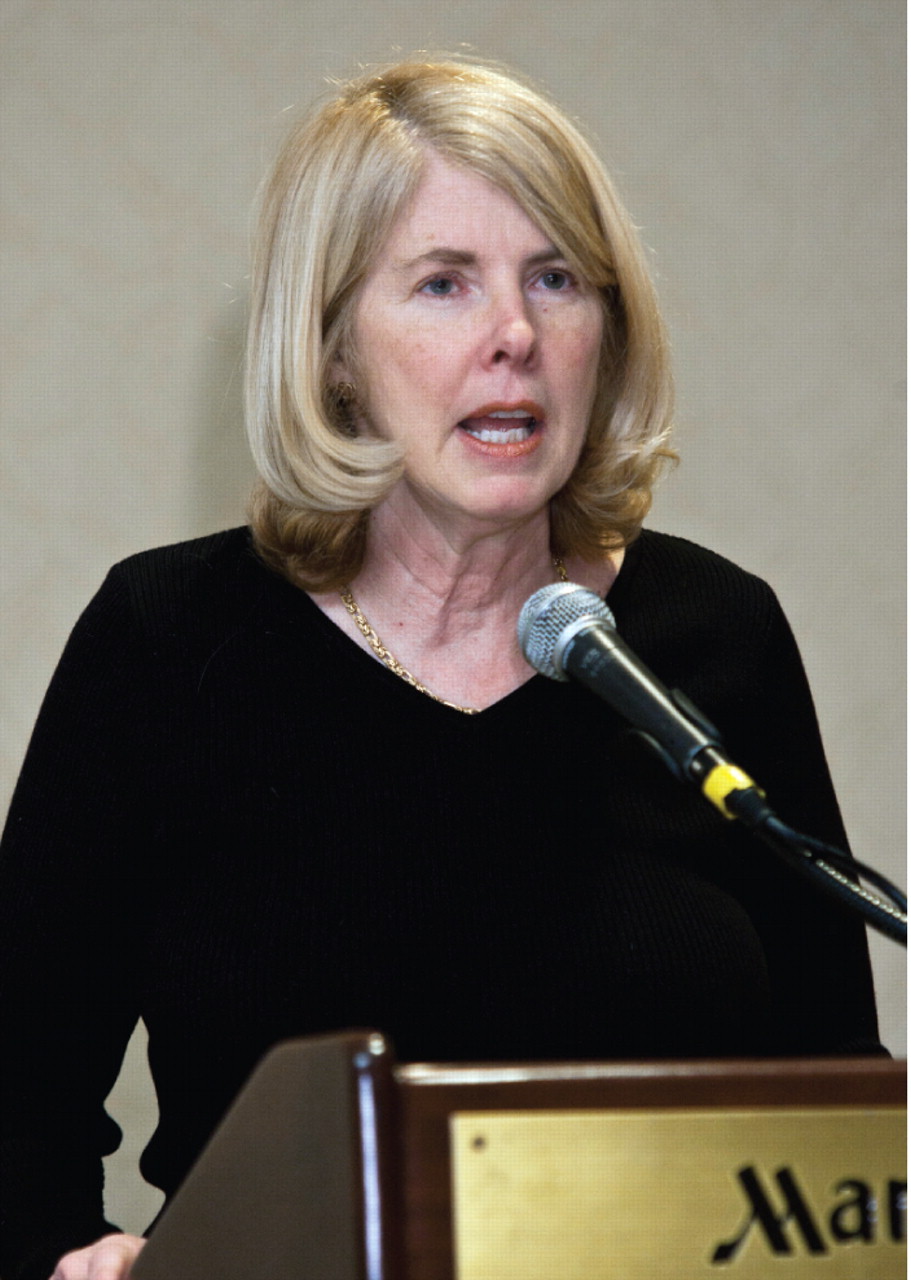Don't Confuse Depression and Grief, Author Advises
Abstract
“It has been said that grief is a kind of madness,” Kay Redfield Jamison, Ph.D., told listeners at APA's Institute on Psychiatric Services in Boston in October. “I disagree.”

Kay Redfield Jamison, Ph.D.: “Madness prepared me for grief. It gave me an unsentimental gauge by which to test my sanity within my grief and a respect for the true terror that is at the core of madness.”
She spoke in hope of adding to the discussion over proposed elimination of the grief exclusion from the DSM-5's criteria for major depressive disorder. That possible change has been characterized by some as medicalizing normal human experience.
“There is a kind of sanity to grief,” continued Jamison, a professor of psychiatry at the Johns Hopkins School of Medicine and honorary professor of English at the University of St. Andrews in Scotland. “It provides a path—albeit a broken one—by which those who grieve can find their way. Grief is not a disease; it is a necessity.”
Jamison has a deep personal acquaintance with both mental illness and grief. She chronicled her experience with bipolar illness in several well-known books, including An Unquiet Mind. The death of her husband, National Institute of Mental Health neuropsychiatry researcher Richard Wyatt, M.D., of cancer in 2002, gave her a powerful understanding of grief as well. She wrote about that experience in Nothing Was the Same.
In the years since, she came to appreciate the differences between the two. She found many contrasts between her experience with mental illness and her experience after her husband's death.
At first, she feared that her depression would return, but it did not. The loss of Wyatt was devastating but not deadly.
“In grief, death occasions the pain,” she said. “In depression, death is the solution to the pain.”
She noticed other differences. If depression was unending, grief came in waves, returning and receding as memories of her husband came and went, she said.
She was distraught and restless, but it was not the agitation of mania. Her thoughts churned, but thinking helped her cope, she said. In depression nothing good came from endless ruminations. She felt better physically than she had during depressive episodes, and she did not think of suicide.
However, some things that were once comforting became burdensome. Listening to Beethoven and Schumann was too intense, too painful, so she gave away her classical music collection. She compensated with words. Tennyson's “In Memoriam” saw her through the most difficult stretches.
“I never had an appreciation for what solace words could bring. In depression, words were meaningless and brought me no comfort.”
Depression was indiscriminately destructive, but grief acted to preserve the self.
Unlike in depression, her mood varied, rising in response to connections with family and friends.
If depression is alienating, she explained, then grief draws together the people who knew the deceased, bonded by the same emotions. Rituals, religious and otherwise, that surround grief are defenses against alienation. Grief begins to alienate and resemble depression only when it becomes too prolonged and too severe.
“There is wisdom in the pain attached to grief, but not in the irredeemable suffering of depression,” she said. “In grief, I understood for the first time how sick I had been. It is not suffering without end.”
As for whether extended or extreme grief should be considered a treatable condition, Jamison noted that people have different reactions to illness and death. Some are frozen in time and can't move on. They should not suffer needlessly; they should be evaluated for depression and receive any needed care.
“I hope the DSM-5 team looking at the issue of grief and depression will go where the data go but also bring in people from religion, ethics, art, or literature,” she said in an interview after her talk. 



